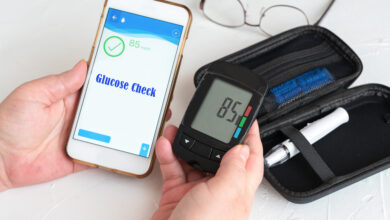Drinking three to four cups of coffee a day might help to cut your risk of developing chronic liver disease, according to a new study by a team of scientists.
All types of coffee can help, the study found, including caffeinated, decaffeinated, filtered, or instant coffee. Ground coffee, including espresso, appeared to be marginally more effective.
The study, published in the journal BMC Public Health, was conducted using participants in UK Biobank, a biomedical database. The findings are noteworthy because chronic liver disease is a significant health condition around the world, the authors of the study noted. Deaths from the disease grew from almost 900,000 in 1990 to 1.32 million in 2017.
According to the American Cancer Society, the instances of liver cancer in the United States have more than doubled over the last 40 years.
The disease is most severe in low-income to middle-income countries where options for treatment are less available.
Because coffee is well known to be safe and is fairly inexpensive, it therefore has the potential to be a widely available lifestyle choice, even in those countries that are low-income and middle-income, the study suggested.
Forms of disease
The most common forms of chronic liver disease are alcohol-related liver disease, chronic hepatitis B and C infections, and non-alcoholic fatty liver disease, the study noted.
These diseases lead to liver fibrosis and later cirrhosis. Cirrhosis can be deadly as a result of complications that relate to portal hypertension, liver failure, or the development or hepatocellular carcinoma.
Study covered 11 years
The study was conducted over about 11 years and included almost 500,000 participants aged from 40 to 69. Of those who took part in the study 78 percent were regular coffee drinkers who consumed a median amount of two cups of coffee a day.
The study found that compared with non-coffee drinkers, coffee drinkers had:
• 21 percent less risk of incident chronic liver disease;
• 20 percent less risk of incident chronic liver disease or fatty liver disease; and
• 49 percent less risk of death from chronic liver disease.
The maximum protection was found to occur with those who drank three to four cups of coffee a day.
Although decaffeinated, instant and ground coffee all lowered the risks of developing chronic liver disease, ground coffee (including espresso) had the largest effect, the study found.
The authors of the research paper noted that a related study in the United States found a lower risk of dying from chronic liver disease among drinkers of two cups of decaffeinated coffee daily compared with those who drank no coffee at all. Decaffeinated coffee might therefore be a preferable alternative for those who are intolerant of caffeine, the study noted.
Number of cups
The study found that the benefits of coffee on cutting the risk of chronic liver disease was lower among those who drank about five cups of coffee a day compared with those who drank three or four cups of coffee a day.
Although benefits in cutting the risk of chronic liver disease were still gained from drinking five or more cups of coffee a day, the benefits were lower, the study found. This finding indicates that there is probably a level above which drinking coffee no longer brings additional benefits with it, the study authors added.
Other ingredients
Other ingredients in coffee besides caffeine include chrlorogenic acid, kahweol and cafestol. These ingredients have been found to protect against liver fibrosis in studies on animals, the researchers reported. Kahweol and cafestol are found in large concentrations in ground coffee, which was found to be the most protective against chronic liver disease.
These factors indicate that a complex relationship might exist among the active ingredients in coffee, the study noted.






